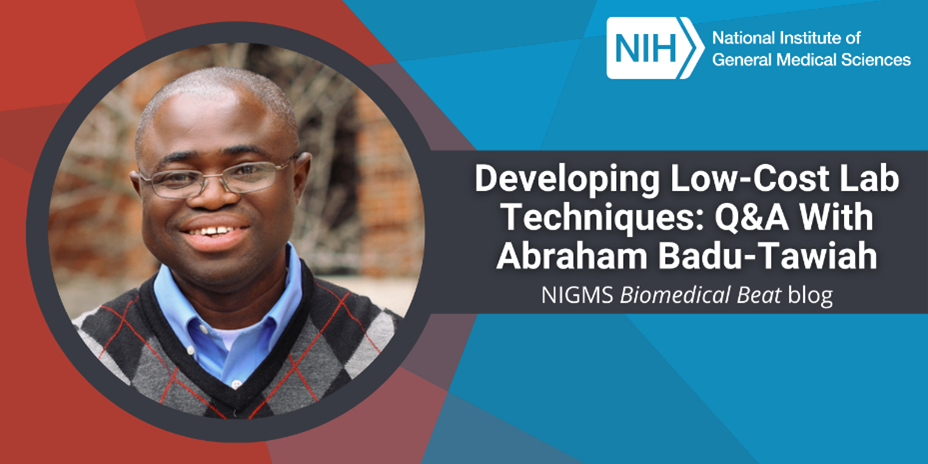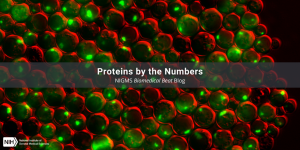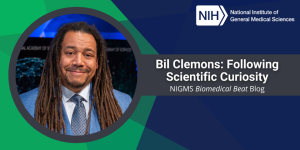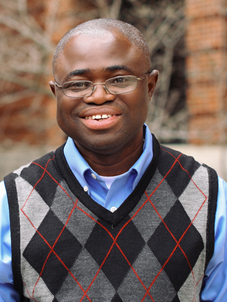
“I never thought I could make an impact on chemistry and students’ lives. But now, I’m the head of a lab with several Ph.D. and undergraduate students and a postdoctoral researcher; and we’re developing simple, low-cost lab techniques that can be adopted by labs across the world,” says Abraham Badu-Tawiah, Ph.D., the Robert K. Fox Professor of Chemistry at Ohio State University in Columbus. We talked with Dr. Badu-Tawiah about his career progression, research, and advice for students hoping to launch a career in science.
Q: How did you get started on the path to a career in science?
A: In Ghana, where I grew up, education works differently than in the United States. High school students are assigned subjects to study primarily based on their grades, and once assigned a subject, it’s difficult to switch. I was assigned to math, physics, and chemistry, which put me on a path toward being an engineer. I was happy to be studying science, but after the death of my brother, I wanted to study medicine more than engineering.
Very few students from the type of high school I attended qualify to attend college. Of the roughly 500 students I went to high school with, only three of us went on to college. (We’re still friends even now.) Similar to high school, students are assigned the subject they will study in college, and less than 10 percent of students get their preferred subject due to limited opportunities and universities. I was assigned to chemistry at Kwame Nkrumah University of Science and Technology in Kumasi, Ghana; and I’ll admit, I was unhappy. For 2 years my grades suffered until it dawned on me that chemistry was what I was given, and I needed to make the most of the opportunity. From that point on, I excelled. I did so well that I was chosen for one of the few teaching assistant positions available after I graduated.
Working as a teaching assistant confirmed for me that I wanted to teach, but to do that, I knew I had to go to graduate school. I applied to Ph.D. programs in the United States and the United Kingdom but wasn’t offered the scholarships that I needed to attend. Because of this, I chose to stay at Kwame Nkrumah University and earn a master’s degree. The following year, I applied to master’s degree programs abroad and was accepted into the chemistry department at Indiana University of Pennsylvania (IUP) in Indiana, Pennsylvania.
Q: Where did you go next?
A: The research I did at IUP was eye-opening and changed what I understood about science. Until then, I thought science was conceptual: Scientists observe the world and generate explanations for their observations. But in reality, scientists make observations and hypotheses and then must validate them. I knew that if I wanted to put myself in a place where I was capable of validating my hypotheses, I needed to further my education. I chose to pursue a Ph.D. in the lab of Graham Cooks, Ph.D., at Purdue University in West Lafayette, Indiana. Dr. Cooks pushed me and taught me everything I needed to know—from writing skills to research skills.
After that, I moved to Cambridge, Massachusetts, for a postdoctoral degree at Harvard University with George Whitesides, Ph.D., which ended up being a big scientific change for me. With Dr. Cooks, I did very fundamental chemistry, but Dr. Whitesides approached his work with a mindset of, “Who can benefit from this research?” When I started my own lab, I meshed those two outlooks together and pursued basic research questions that could be used in the lab and in medicine one day.
Q: What does your lab study?
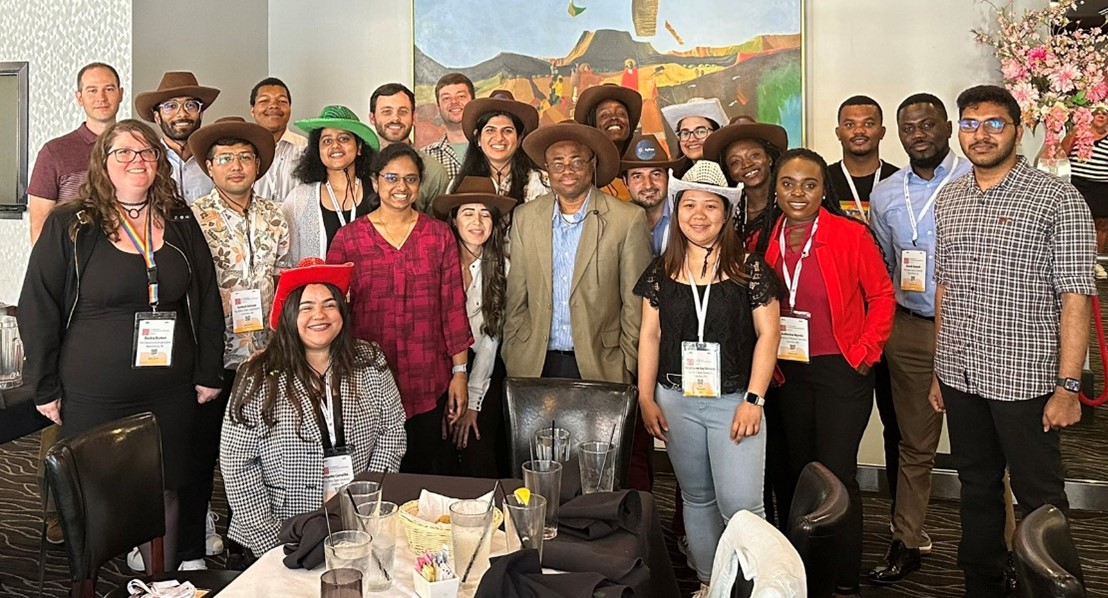
A: We study mass spectrometry, a lab technique used to determine the composition and abundance of the atoms and molecules in substances. One challenge with this technique is that it can’t distinguish between molecules of the same mass, such as similar sugars or lipids. Our lab has shown that treating samples with the salt ammonium chloride changes the molecules into substances that the mass spectrometer can identify and differentiate. Now, using this technique, we can tell the difference between molecules that traditional mass spectrometry can’t.
It’s important to me that I develop low-cost, high-quality techniques that can be easily adopted. This ammonium chloride reaction doesn’t require new equipment, so any lab that already has access to a mass spectrometer can start using the technology. Clinical labs may adopt the reaction step because many sugars and lipids in the blood are measured as tests for diseases, and this technique could enable them to get the same information with less blood.
My lab is also developing a low-cost malaria test that combines a paper test strip with portable mass spectrometers to check small amounts of blood for the malaria parasite. In 2022, I trialed the test in Ghana, which experiences high numbers of malaria cases, to make sure it generated reliable results. The biggest goal I have for the future is to get this test approved for sale as a medical device and in the hands of the people who need it.
Q: What work are you involved in outside of the laboratory?
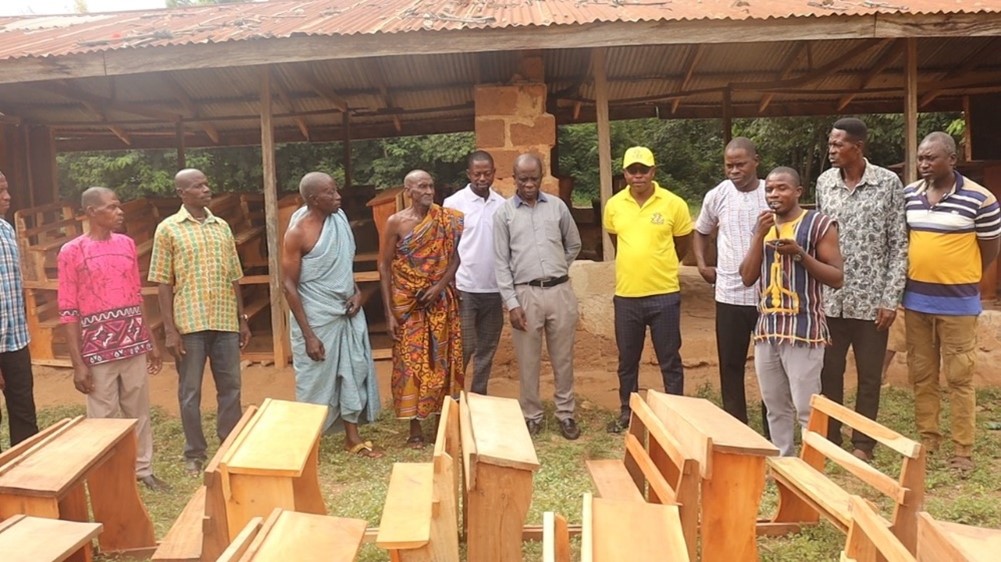
A: I lead the X-Ed Foundation, which is a nonprofit organization I started in 2020 that seeks to bring hope and positive change to young students in vulnerable and underserved communities around the world. We do this by raising funds and donating supplies such as textbooks, notebooks, and desks to schools. I’m also working to encourage other African professionals to come together and build a community that can inspire the next generation.
Q: What advice would you give to students who are interested in pursuing a career in science?
A: I’d encourage students to persevere through whatever challenges life throws at them and to never be discouraged if their journey looks different than they expected. It bothered me for many years that I worked for two master’s degrees—I believed that I’d wasted my time by not going directly to a Ph.D. program. Now, I realize that those years benefited me. They opened my mind to new experiences, and some of the work I did in my second master’s program is directly related to what I’m doing now.
Dr. Badu-Tawiah’s research is supported by NIGMS through grant R01GM149080. He also receives funding through grant R01AI143809 from the National Institute of Allergy and Infectious Diseases for his malaria test work and through grant R21CA270727 from the National Cancer Institute.


